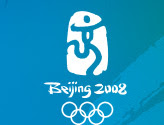Aaron Schwabach wrote an well written and interesting essay called ‘Intellectual Property Piracy: Perception and Reality in China, the United States, and Elsewhere’. Find the pdf here.
Mr Schwabach starts with the quote: “There is probably more misinformation about China than about any other country in the world”. That is hard to proof. But it is also IP Dragon’s mission to make intellectual property in China, including its perception in the world at large more transparent. So IP Dragon was very happy that Mr Schwabach took upon himself the difficult task to debunk a perception gone awry, at least in the eyes of Mr Schwabach.
Mr Schwabach wants to drive home the point that there is a widespread but incorrect perception in the US that IP piracy is only or primarily a problem in developing countries, especially East Asian countries, and most especially China.
First IP Dragon opines IP infringements (counterfeit and piracy) from China is a bigger problem than IP infringements in China. This will change over time, when the demographics change in China and a more substantial middle class comes into existence.
Although Mr Schwabach rejected the cover showing a card table covered with DVDs and VCDs of Hollywood movies, presumably offered for sale, labeled in Chinese, because “it is only a very small part of IP law and receives only brief discussion in the [Mr Schwabach’s book called Intellectual Property] book on intellectual property law”. This essay is only about copyright piracy in China. And it does not mention a thing about seize or dimension of copyright piracy coming from China or counterfeiting in China and originating from China.
I guess Mr Schwabach is fighting fire (incorrect perception of importance of IP piracy in China) with fire (remaining silent about the importance of other IP infringements in and from China, at least in this essay).
Well having written this, let’s look at his assertions that are to debunk the perception about IP piracy in China:
His theory that countries or the Special Administrative Region of Hong Kong has a low per-capita loss, because of its movie industry, is hard to proof, since this could also be caused, because of Hong Kong’s different jurisdiction and the more effective enforcement authorities. But it is an interesting thesis, which deserves further study.
Mr Schwabach looks at different statistics:
MPA members’ lost revenues, per capita
IP Dragon agrees with Mr Schwabach’s assessment that online piracy is harder to catch and sellers of pirated DVDs are out in the open, so it is easier to put the attention on this group.
Per capita cost of piracy is negligible in China according to Mr Schwabach. He thinks that although a significant percentage of China’s 1.3 billion people are excluded from participating in the modern information society, the explanation lies in the language of the Hollywood movies, which are in English. However, I do not think Mr Schwabach ever saw a pirated movie, which pleads for him. If he did, he could see that many are subtitled with Chinese characters.
IP Dragon opines the first reason, the exclusion of the majority of the Chinese of DVD players is the reason there is not much per capita cost of piracy.
MPA members’ lost consumer spending due to movie piracy, per capita
The statistics show that the total loss of consumer spending due to movie piracy in China at 2,7 billion dollar, is the highest total amount of any country in the study other than the US. However, not the highest per capita, because again of the dilution by the poor masses.
Total consumer spending lost to movie piracy, per capita
Because Chinese also watch Chinese pirated movies, the per capita consumer spending is somewhat higher than the MPA members’ lost consumer spending, due to movie piracy.
Retail sales value of music piracy, per capita
I do not understand the sentence: “And despite the near-universal availability of Internet access in the US, per capita sales of pirated music recordings are actually higher in the US than in 11 of the 21 other countries and territories listed here, including China, India, Korea, and Thailand, and comparable to rates in Hong Kong, Japan and Taiwan.” Maybe the word despite is a mistake.
I enjoyed reading Mr Schwabach’s essay and hope he will write about the importance of IP infringements (piracy and counterfeiting) originating from China too. Perception is best served when the bigger picture/context is given too of the IP in/from China challenge.







































 Mutant Frog Travelogue
Mutant Frog Travelogue





